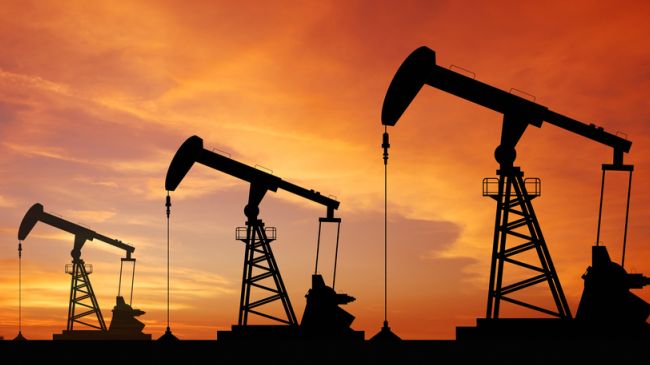Oil rout makes poor Pacific nation winner in global gas race

By Bloomberg
While tumbling oil prices are threatening the viability of energy projects around the world, a small Pacific nation is bucking the trend.
The liquefied natural gas industry in Papua New Guinea, whose economy is half the size of the state of Vermont’s, is forecast to expand and to be profitable even at oil prices that have slumped 44 percent in the past year.
This drop has forced majors from Royal Dutch Shell Plc to Chevron Corp. to cut or delay spending on projects from Australia to Canada that sell LNG linked to the price of oil. The outlook’s different in Papua New Guinea with its lower costs, taxes and higher-quality resources.
Exxon Mobil Corp. is seeking to add capacity to its $19 billion development that started exports to Asia last year, while Total SA is planning the nation’s second export project.
“We can get a superior rate of return at relatively low oil prices, and at prices we believe could be lower than present day,” Peter Botten, managing director of Oil Search Ltd., a partner in both ventures, said in an interview. “A number of projects around the world I think are going to struggle in this environment.”
Oil Search, Total’s other PNG partner InterOil Corp. and Inpex Corp. are Sanford C. Bernstein & Co.’s “top picks” in global LNG. Approval for an Exxon expansion and construction of the Total project are expected before the end of 2018, said Neil Beveridge, Bernstein’s Hong Kong-based analyst.
Lowest Cost
Papua New Guinea’s LNG ventures should be cheaper than planned projects off Mozambique, “definitely more competitive than some Canadian projects, and are probably up there with some of the LNG projects in the U.S., which is probably one of the lowest-cost areas for new LNG,” Beveridge said by phone.
LNG projects super-cool and condense gas into liquid form at about minus 160 degrees Celsius (minus 260 Fahrenheit) so it can be shipped to overseas markets.
Although the economics of the Papua New Guinean projects are also hurt by the plunge, the quality of the gas resources, higher liquids content, cheaper labor and lower taxes give them an advantage, according to Credit Suisse Group AG.
Among proposed LNG projects in the Asia-Pacific region, a potential expansion of Exxon’s project and a Total project, using supplies from the Elk and Antelope discoveries, are in the best position to go ahead, said Mark Samter, a Sydney-based analyst at Credit Suisse.
Excluding some export ventures in the U.S., where LNG isn’t linked to the price of crude, they probably have the best prospects globally, he said.
‘1 and 2’
“We need to know the size of the resource at Elk-Antelope, but presuming it’s of scale, clearly they are number one and two,” Samter said by phone.
Oil Search, which has operated in Papua New Guinea since 1929, is targeting at least two more LNG production units in the country, and a third unit is possible with “modest drilling success,” the company said earlier this week.
The Exxon plant is forecast to more than double the country’s gross domestic product and triple export revenues, according to Oil Search. Papua New Guinea, with a GDP of about $15.3 billion in 2013 compared with Vermont’s $31 billion and neighboring Australia’s $1.56 trillion, also will see its cash flows hit by lower oil prices.
Papua New Guinea can supply lots of natural gas “with material liquids content, including light oil, which adds to the revenue stream for relatively little cost” and makes its projects more competitive than high-cost developments in places including Australia, Oil Search’s Botten said this week.
Biggest Exporter
Australia is on-track to become the world’s biggest exporter of LNG following the completion of about $180 billion of projects. Still, a fall in oil prices threatens to erode the returns of the export developments.
Brent, the benchmark for more than half the world’s oil, traded at $61 a barrel at 4:09 p.m. Sydney time today, compared with about $109 a barrel a year ago.
Japan’s weighted import price of LNG is poised to average between $9 and $10 per million British thermal units in 2015, compared with $15.75 in 2014, according to IHS Inc.
The potential Elk-Antelope venture may need a price of about $7 or $7.50 per million British thermal units to generate a 10 percent rate of return, Credit Suisse estimates.
Four out of 11 LNG plants in Australia and PNG that are already approved or are under development need a price of at least $12 per million British thermal units to break even, according to an Oil Search presentation in October, citing data from energy consultants Wood Mackenzie Ltd., and without naming the projects. Exxon’s PNG LNG project requires less than $8, the figures show.
Corruption Index
Energy companies in Papua New Guinea, where the livelihood of about 85 percent of the population depends on farming, do face hurdles. Failure to find enough gas to underpin an LNG plant and to agree to tax terms with the government are among risks to InterOil, while Oil Search faces potential political and social unrest, according to Bernstein.
Papua New Guinea ranks 145 out of the 174 nations on Transparency International’s 2014 corruption perceptions index, lower than Nigeria and Pakistan. The nation’s crime rates are considered some of the highest in the world, according to a 2012 U.S. State Department report.
In Australia, Woodside Petroleum Ltd. in December deferred its proposed Browse LNG venture. In Canada, Petroliam Nasional Bhd. is trying to cut the cost of its project before making a decision on whether to proceed, while Chevron Corp. is significantly slowing spending on the Kitimat LNG project.
The Papua New Guinea projects “are not without their own set of challenges,” said Credit Suisse’s Samter. “But they are pretty unique.”
